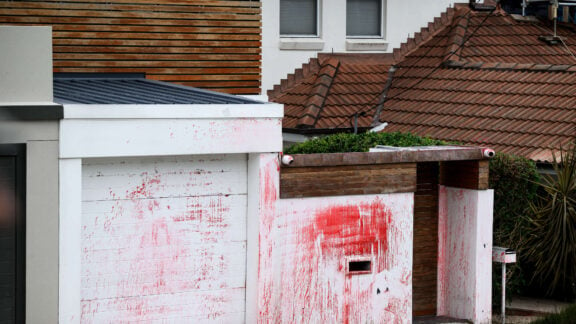Prime Minister Antonis Samaras will hold his first meetings with eurozone leaders since taking office, to assure them he will honour a pledge for more austerity and ask for an extension of the fiscal adjustment period to 2016.
Having recovered from eye surgery that has prevented him travelling since June, Samaras will fly to Berlin and Paris to meet German Chancellor Angela Merkel and French President Francois Hollande on August 24 and 25. Earlier in the week, he will meet eurozone chief Jean-Claude Juncker, Greek and German government officials said on Wednesday.
“Our key priority is to regain our credibility by showing our determination,” a government official told Reuters.
Samaras is already preparing public opinion for further cuts. “We’re all having a difficult time. There will be more hardship,” he said on Monday from Messinia, where he spent the August 15 holiday.
EU officials told Reuters last month that Athens was way off its bailout targets, was unlikely to be able to pay what it owes and further debt restructuring is likely to be necessary if it was not to be abandoned.
Samaras will use his talks next week to raise a long-standing proposal that the measures be spread over four instead of two years, to soften their impact on an economy enduring its longest and deepest recession since World War Two.
No formal request will be made but the proposal will be broached as part of exploratory talks, the official said. “The matter of extension is already being debated in Greece and abroad. Its official submission is a different matter”.
Berlin insists that Athens honour its pledges but was open to discussion, German government spokesman Steffen Seibert told reporters.
Asked about the government seeking a two-year austerity extension, he said: “The chancellor will of course first listen to what Mr Samaras has to say about the situation in Greece and about the implementation of its programme. For her, as for the rest of the German government, the agreed memorandum of understanding which sets out what the Greeks must achieve and which remains valid for us, forms the basis for working together with or helping Greece.”
A two-year extension to narrow the budget deficit below 3 per cent of GDP in 2016 instead of 2014 was a key plank of Samaras’ campaign for the June 17 election that brought him to power as head of a fragile three-party coalition.
An extension would mean the country’s bailout package may have to be increased by 20-50 billion euros, according to estimates by some eurozone officials and economists.
European policymakers are working on “last chance” options to bring the country’s debts down and keep it in the eurozone, with the ECB and national central banks looking at taking big losses on the value of their bond holdings.
The latest aim is to reduce debts by a further 70-100 billion euros, several senior eurozone officials familiar with the discussions told Reuters, cutting its debts to a more manageable 100 percent of annual economic output. Citing a Greek government document, the Financial Times reported on Tuesday that the government put the price tag of a two-year extension at 20 billion euros.
According to the report, Athens hopes to cover that amount without help from its eurozone partners, tapping an existing IMF loan, short-term debt sales and a possible postponement of debt repayments from the first EU/IMF loan it obtained in 2010.
Source: Reuters, Athens News/dv
Advertisement
Samaras to seek bailout extension
Prime Minister Antonis Samaras will hold his first meetings with eurozone leaders to assure them he will honour a pledge for more austerity and ask for an extension








